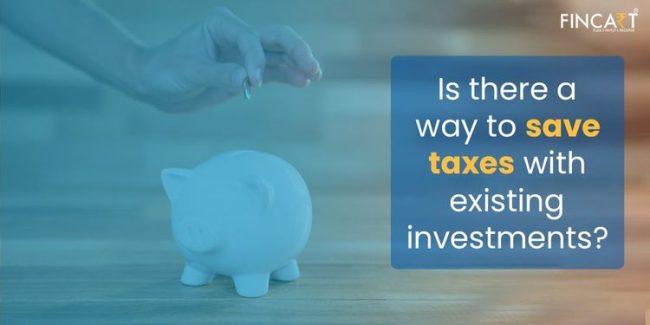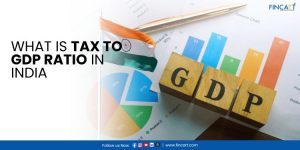Table of Contents
ToggleThe entire year you work so hard to get a desirable increment. The happiness you feel with every increment comes with minor heartbreak. How? Well, the more your salary increases the more you end up paying taxes as you might enter into a bigger tax slab. This is a feeling every taxpayer in the country might relate to!
Saving taxes is always a question that is on every taxpayer’s mind. Well, to stop you from overthinking, the income tax of India, entails various sections to help you claim deductions. For those of you who are already investing in various avenues, there are many investment opportunities where you can save tax too! For those who are planning to invest make sure you consider the mentioned below sections in order to save tax too!
Section 80c (deductions on investments)
The option to invest and save taxes is a combination that every taxpayer benefits from. Among all the sections, Section 80C is one of the most popular and favorite sections. This is because it allows reducing taxable income by making tax-saving investments. Every year it allows a maximum deduction of Rs. 1.5 lakhs from taxpayers’ total income.
Not all investments fall into the eligibility category of claiming the deduction, mentioned below are some investments that are eligible for deduction under Section 80C:
ELSS (Equity Linked Savings Scheme)
An equity-linked savings scheme (ELSS) invests the majority of the investment amount in equity or equity-related instruments. Their main selling point is their tax-saving features. One of the best things about ELSS funds is that they have a 3-year lock-in period, but no maximum investment tenure!
Investments are primarily made in equity markets, resulting in significantly higher returns than other tax-saving schemes. Due to the fact that these mutual funds invest in the stock market, they may carry a moderate risk, but the risk factor can be evened out over time, making it a highly profitable tax-saving investment. If your ELSS investment gains exceed 1 lakh in a financial year, you have to pay an LTCG tax of 10%. ELSS investments can be a great investment if you want to earn decent returns and can invest for a long time.
PPF (Public Provident Funds)
A PPF is a long-term investment option that offers tax benefits as well. Currently, PPF accounts earn 7.9% compounded annually and have a 15-year lock-in period. It means you have to stay invested for 15 years, though partial withdrawals are permitted from the seventh year onwards. It is possible to open an account with as little as rs 100. Investing a minimum of rs 500 and a maximum of 1.5 lakh are allowed in a financial year.
In case your annual investment exceeds rs 1.5 lakh, interest cannot be earned on the excess amount. For 15 years, you must make at least one deposit per year. The PPF is considered a tax-saving investment option. At the time of withdrawal, you do not have to pay any taxes on the deposit or interest.
Senior Citizen Savings Scheme
As a risk-free tax-saving investment, the Senior Citizens Savings Scheme is an option for retired or voluntary retirees. It is a government-backed long-term savings option. There is a five-year maturity period, which can be extended by three years. You can withdraw your money prematurely after a year of opening the account, and the current interest rate is 8.6%.
The penalty for closing the account before two years is 1.5% of the deposit. If the interest exceeds rs 10,000 per year, TDS is applicable. Your SCSS account will provide you with a regular income after retirement
National Pension System:
NPS or National Pension Scheme is an initiative of social security that is a government-owned investment option. This is designed to meet the financial needs of employees of private, public, or unorganized sectors for their retirement. The introduction this scheme was first made for the central government and later on, it was introduced to all the citizens of India between the ages of 18-60 years.
With NPS, the investors invest a portion of their income at regular intervals. This way, this scheme allows you to accumulate your retirement corpus and through this, you would be able to get a pension during your retirement years. The minimum amount to start investing in NPS starts from Rs.500 up to no limit. However, the main thing is that withdrawals can only be made once you have reached the age of 60.
The best part of investing in NPS is that it comes with additional tax benefits. For instance,
- Under section 80CCE a deduction up to Rs. 1,50,000 can be claimed;
- Under section 80CCD(1B) up to Rs. 50,000 can be claimed;
- Lastly, under section 80CCD(2) up to 10% of the basic salary can be claimed.
Also Read: Best Investment Plans with Higher Returns in India
SECTION 80D
Deduction for the Premium Paid for Health Insurance
A health insurance policy serves two purposes, first, to provide financial protection for yourself and your family, and second, to save you money on taxes. Under this section, you can deduct Rs. 25,000 for yourself, your spouse, and your children. Furthermore, you can also deduct up to Rs. 25,000 from your parents’ insurance if they are younger than 60.
The deduction amount is 50,000 if your parents are over 60 years old. This deduction amount was increased in Budget 2018 from Rs. 30,000. Taxpayers and their parents who are 60 years or older can claim a maximum deduction of Rs. 1 lakh under section 80D if they are both 60 years or older. For instance, if you are 65 years old and your father’s age is 85, in this scenario, the maximum deduction for you would be Rs. 1,00,000.
Section 80ccd
National Pension System (NPS) investments are eligible for tax deductions under Section 80CCD. This section is divided into two subsections:
- Section 80CCD (1): Tax deductions are available for investments in NPSs. Investing in NPS is tax-deductible for Indian citizens between 18 and 60 years old. This benefit is available to NRIs as well. This section allows you to deduct up to 10% of your salary (basic salary plus DA). In the case of self-employed individuals, the limit is 20% of their gross total income. You can also avail of a maximum benefit of 1.5 lakhs per year under this section.
- Section 80CCD (1b): This subsection provides an additional deduction of rs 50,000 on investments in NPS. This is in addition to the rs 1.5 lakh available under Section 80CCD(1). So, in short, you can avail of a total tax deduction of rs 2 lakh when you invest in NPS every year.
Filing taxes is one thing, but saving from taxes is another, and one should have an understanding of how to save from taxes. By availing of the deduction mentioned above, you could end up claiming major deductions. It is advisable to use these investment opportunities effectively to save taxes from them. Consulting with a tax advisor can also provide valuable insights into optimizing your tax-saving strategies.




